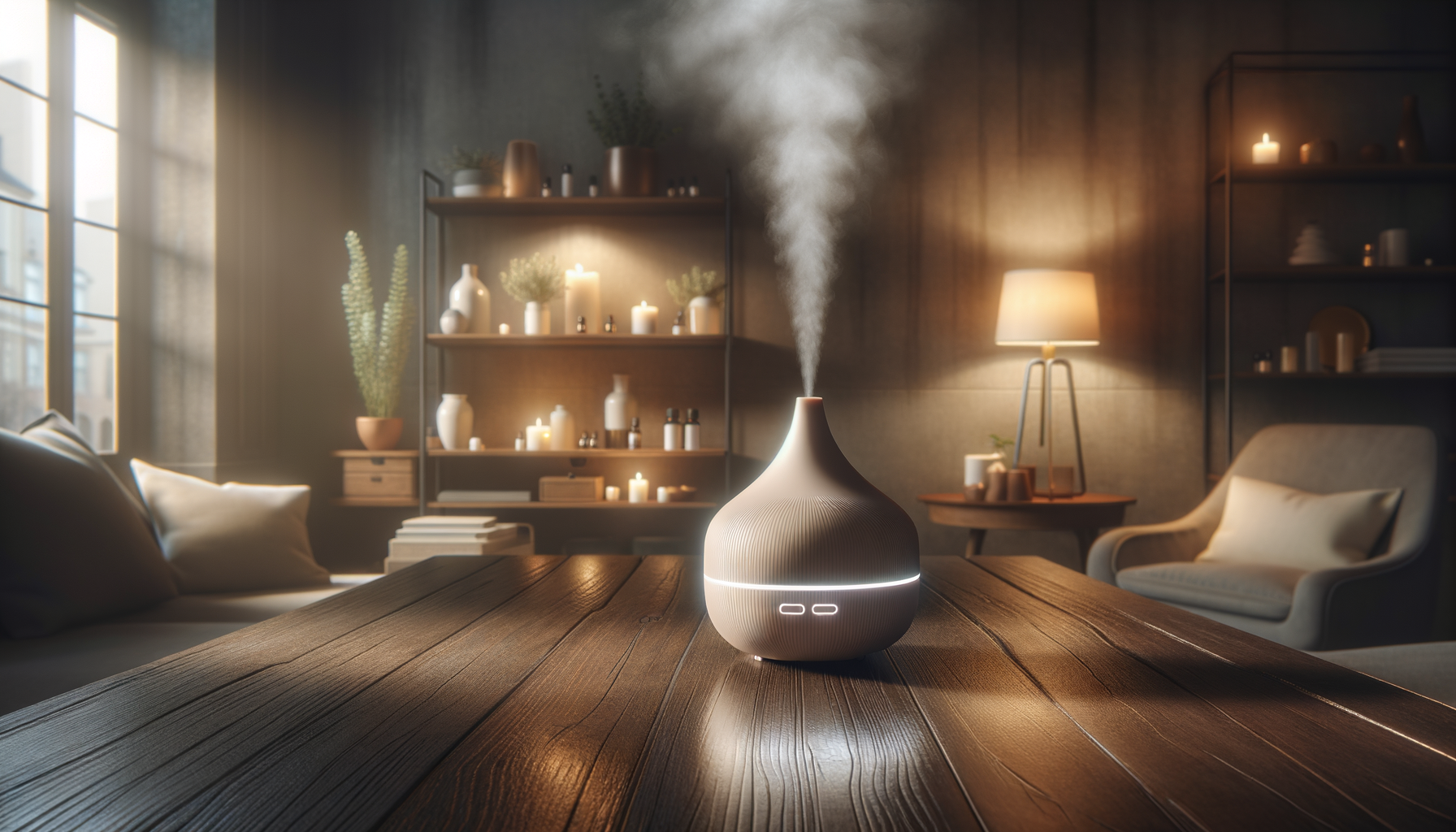Looking for Relaxation at Home? Air Oil Diffusers Could Help
Air diffusers are becoming increasingly popular for their ability to enhance the ambiance and improve indoor air quality.

Understanding Air Diffusers
Air diffusers are devices designed to disperse essential oils into the air, creating a pleasant and therapeutic atmosphere. They work by breaking down the essential oils into smaller molecules, which are then distributed into the air, allowing you to breathe in the benefits. The concept of diffusing essential oils is rooted in aromatherapy, a practice that dates back thousands of years. Aromatherapy is known for its potential to enhance psychological and physical well-being.
There are several types of air diffusers available, each with its unique mechanism. The most common types include ultrasonic diffusers, nebulizing diffusers, evaporative diffusers, and heat diffusers. Ultrasonic diffusers use water and ultrasonic waves to disperse the oils, while nebulizing diffusers use pressurized air to achieve the same effect. Evaporative diffusers rely on a fan to spread the oil, and heat diffusers use warmth to disperse the scent.
Choosing the right diffuser depends on various factors such as the size of the room, the desired intensity of the scent, and personal preferences. Ultrasonic diffusers are popular for their quiet operation and ability to humidify the air, while nebulizing diffusers are favored for their strong aroma output without the use of water.
Benefits of Using Air Diffusers
Air diffusers offer a multitude of benefits that can enhance your living space and overall well-being. One of the primary benefits is the improvement of air quality. By dispersing essential oils, diffusers can help purify the air by reducing bacteria, fungi, and unpleasant odors.
Another significant benefit is stress relief. Essential oils like lavender and chamomile are known for their calming properties, making them ideal for creating a relaxing environment. The act of diffusing these oils can help reduce anxiety, improve mood, and promote better sleep.
Moreover, air diffusers can boost your immune system. Certain essential oils, such as eucalyptus and tea tree oil, have anti-inflammatory and antibacterial properties that can help ward off illnesses. Regular use of these oils in a diffuser can contribute to a healthier immune response.
In addition to health benefits, air diffusers can enhance focus and concentration. Oils like peppermint and lemon are known for their invigorating properties, which can help sharpen mental clarity and boost energy levels.
Choosing the Right Essential Oils
Selecting the appropriate essential oils is crucial to maximizing the benefits of your air diffuser. Essential oils are concentrated plant extracts that capture the essence of the plant’s fragrance and therapeutic properties. With a plethora of options available, it’s essential to choose oils that align with your specific needs and preferences.
For relaxation and stress relief, consider oils like lavender, chamomile, and bergamot. These oils are renowned for their soothing effects and can help create a tranquil atmosphere. If you’re looking to boost your energy and concentration, opt for oils such as peppermint, lemon, or rosemary. These invigorating scents can help enhance alertness and focus.
For those interested in improving respiratory health, eucalyptus and tea tree oils are excellent choices. Their antimicrobial properties can help clear the airways and support respiratory function. Additionally, for those seeking to elevate their mood, citrus oils like orange and grapefruit can provide an uplifting and refreshing ambiance.
It’s important to note that essential oils should be used with caution. Always follow the recommended usage guidelines and consider any potential allergies or sensitivities. Mixing oils can create unique blends, but it’s advisable to research compatibility and effects before combining them.
Maintenance and Care for Air Diffusers
Proper maintenance and care of your air diffuser are vital to ensuring its longevity and optimal performance. Regular cleaning prevents the buildup of oil residues, which can affect the diffuser’s efficiency and the quality of the dispersed aroma.
Most manufacturers recommend cleaning the diffuser after every use or at least once a week. To clean your diffuser, start by unplugging it and emptying any remaining water and oil. Use a soft cloth or cotton swab dipped in vinegar or rubbing alcohol to wipe down the interior components, including the ultrasonic plate. For stubborn residues, a mixture of water and vinegar can be used to soak the parts before wiping them clean.
In addition to cleaning, it’s essential to use distilled or filtered water in ultrasonic diffusers to prevent mineral buildup. Regularly check the diffuser’s components for wear and tear, and replace any damaged parts as needed. Following these maintenance tips can help extend the life of your diffuser and ensure a consistent and pleasant aroma experience.
Proper storage is also crucial. When not in use, store your diffuser in a cool, dry place, and ensure it’s completely dry before putting it away. This prevents mold growth and maintains the device’s quality over time.
Conclusion: Enhancing Your Space with Air Diffusers
Incorporating an air diffuser into your home can significantly enhance your living environment. From improving air quality to providing therapeutic benefits, diffusers offer a versatile solution for creating a healthier and more pleasant atmosphere. Whether you’re seeking relaxation, improved focus, or a boost to your immune system, air diffusers can be a valuable addition to your wellness routine.
By understanding the different types of diffusers, selecting the appropriate essential oils, and maintaining your device properly, you can maximize the benefits and enjoy the full potential of aromatherapy in your home. As you explore the world of air diffusers, you’ll discover a new realm of relaxation and well-being that can transform your daily life.